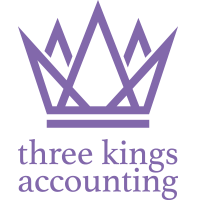Land Transaction Tax (LTT) is payable by the purchaser of property in Wales.
Who pays the tax?
LTT is payable by the purchaser of residential or non-residential property in a land transaction occurring in Wales. Stamp Duty Land Tax (SDLT) is payable on land transactions in England and Northern Ireland and Land and Buildings Transaction Tax (LBTT) on land transactions in Scotland.
What is a land transaction?
A transaction will trigger liability to LTT if it involves the acquisition of an interest in land. This will include a simple conveyance of land, such as buying a house, creating a lease or assigning a lease.
LTT is operated by the Welsh Revenue Authority (WRA), and individuals who are liable to the tax must complete and submit an LTT return (see later).
When is the tax payable?
Individuals must send an LTT return and pay the tax due to the WRA within 30 days of the day after completion (or other effective date of the transaction). Penalties and interest may be charged if you fail to file your LTT return or pay the necessary tax within the 30 days after the day of completion.
In some circumstances, the transaction is not notifiable and the acquirer is not required to send a LTT return or pay LTT. These include both exempt transactions and exceptions:
- no money has exchanged hands (exempt)
- a property is left to you and you are not required to make a payment for the transfer of the property (exempt)
- property ownership is transferred to you as a result of a divorce or the dissolution of a civil partnership (exempt)
- freehold property has been purchased for less than £40,000 (exception)
- a new or assigned lease of seven years or more is purchased, and the premium is less than £40,000 and the annual rent is less than £1,000 (exception)
- a lease assignment or surrender, where the original term was:
- less than seven years and the amount you pay is less than the residential or non-residential LTT zero rate threshold.
- more than seven years and the amount you pay is less than £40,000 (exceptions).
What if my property straddles the England-Wales border?
For cross-border cases, a home buyer will only be required to pay SDLT on the English part of the transaction and LTT to the WRA for the Welsh part of the transaction.
LTT rates
Non-residential rates have been applicable since 22 December 2020:
| Non-residential (£) | Band % Rate |
| Up to 225,000 | 0 |
| 225,001 – 250,000 | 1 |
| 250,001 – 1,000,000 | 5 |
| Over 1,000,000 | 6 |
The residential rates have applied from 10 October 2022:
| Residential (£) | Band % Rate |
| Up to 225,000 | 0 |
| 225,001 – 400,000 | 6 |
| 400,001 – 750,000 | 7.5 |
| 750,001 – 1,500,000 | 10 |
| Over 1,500,000 | 12 |
The higher rates for the purchase of a second or subsequent residential property or residential properties purchased by companies/non-natural persons which have been increased by 1% from 11 December 2024 are:
| Residential (£) | Band % Rate |
| Up to £180,000 | 5 |
| 180,001 – 250,000 | 8.5 |
| 250,001 – 400,000 | 10 |
| 400,001 – 750,000 | 12.5 |
| 750,001 – 1,500,000 | 15 |
| Over 1,500,000 | 17 |
The higher rates for the purchase of a second or subsequent residential property or residential properties purchased by companies/non-natural persons that applied from 22 December 2022 to 10 December 2024 were:
| Residential (£) | Band % Rate |
| Up to £180,000 | 4 |
| 180,001 – 250,000 | 7.5 |
| 250,001 – 400,000 | 9 |
| 400,001 – 750,000 | 11.5 |
| 750,001 – 1,500,000 | 14 |
| Over 1,500,000 | 16 |
First-time buyers
Unlike SDLT and LBTT, LTT does not provide any relief for first-time homebuyers in Wales.
How we can help
If you are planning to enter into an arrangement to purchase land, we can advise you of the precise impact of LTT on the transaction, so please contact us.


